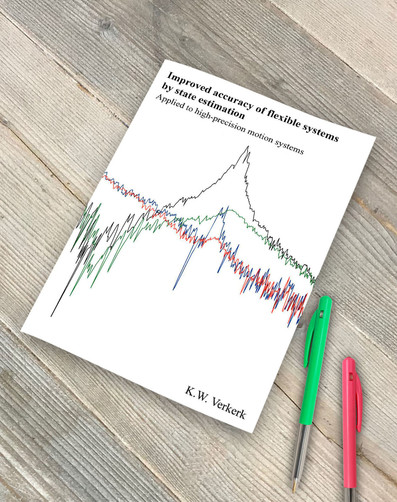
High-precision motion systems are subject to aggressive reference trajectories (5 g acceleration and upward) and demanding accuracy specifications (nanometer accurate reference tracking). Conventional control of such systems involves decoupling of the rigid body dynamics. Then, decoupled feedback controllers provide disturbance rejection, while decoupled feedforward controllers provide the desired reference tracking performance. Increasingly stringent performance requirements result in a desire for increased feedback control bandwidths. The increased bandwidth is beneficial for the rejection of low frequency disturbances that are a source of tracking errors.
The bandwidth is currently limited by position-dependent resonance dynamics in the transfer function of high-precision systems. These resonance peaks are due to the limited mechanical stiffness of the high-precision motion system, their position-dependent nature originates from position-dependent effects in actuators and/or sensors. The position-dependent phase behavior of these resonance dynamics limits the feedback bandwidth that can be achieved with a conventional (position-independent) control strategy.
